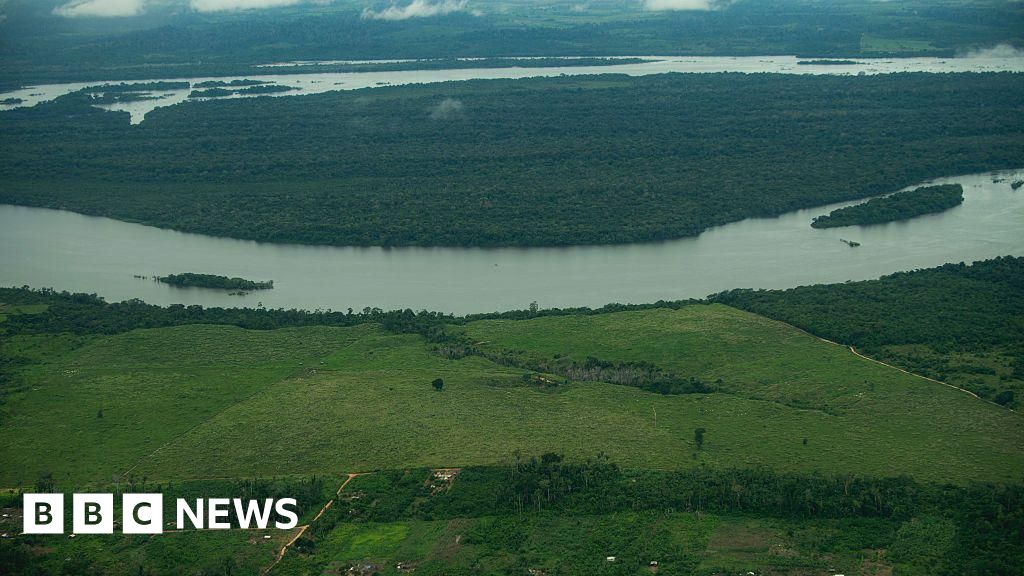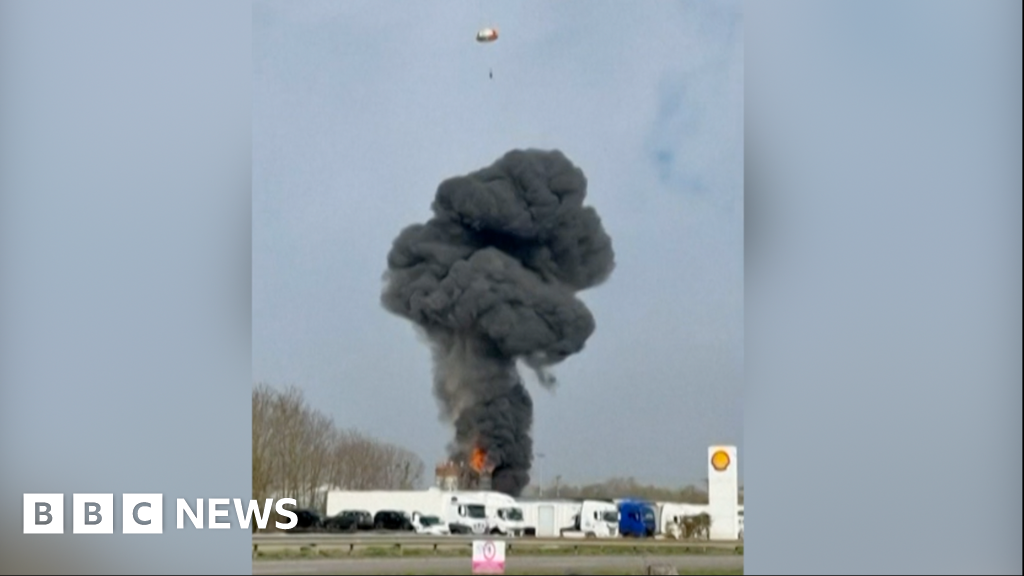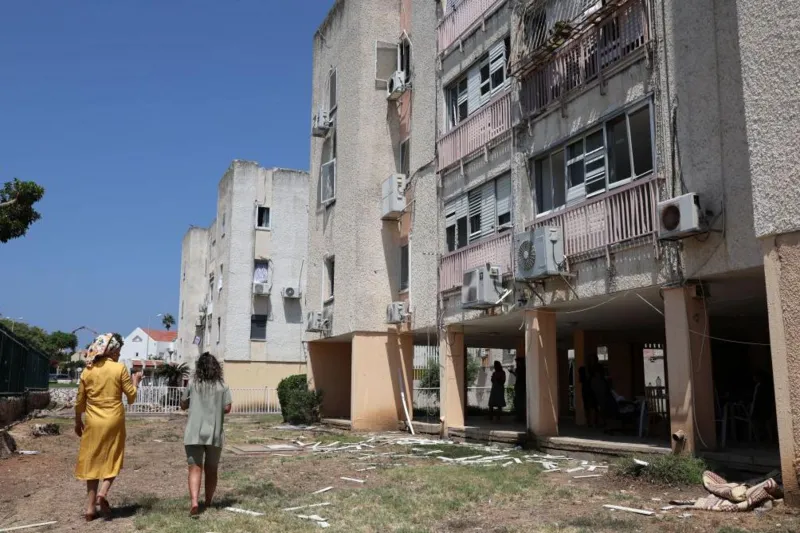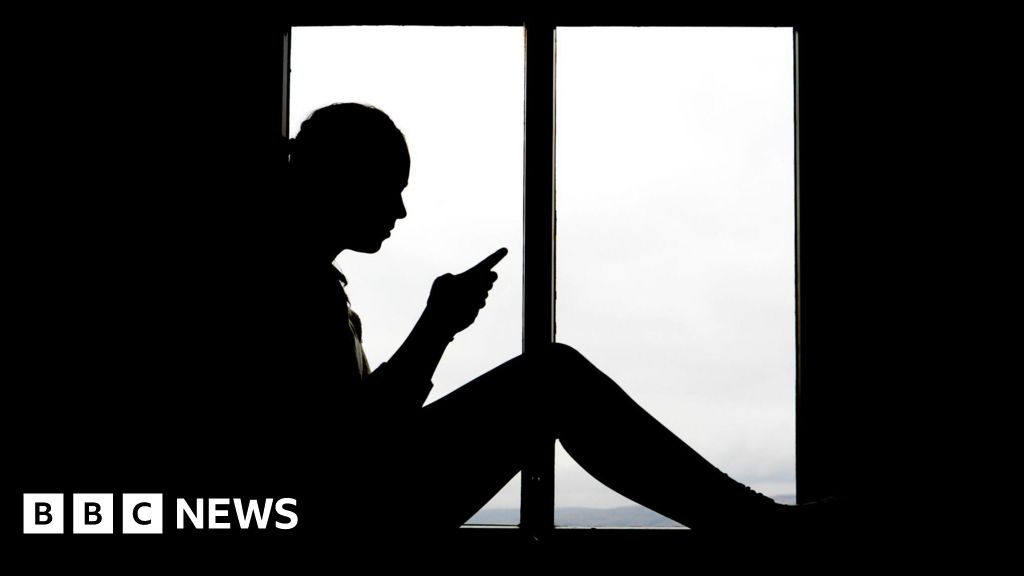
A new law in Brazil could cause “significant environmental harm and human rights violations”, and represents a “rollback for decades” of protections in Brazil, including for the Amazon, a UN expert has told BBC News.
Plans to speed up approvals for development projects were criticised by Astrid Puentes Riaño, a UN special rapporteur, as the country prepares to host the COP30 climate summit this year.
Lawmakers passed plans to simplify environmental licences for infrastructure including roads, dams, energy and mines this month, though the president has not formally approved the bill.
Critics have dubbed it the “devastation bill” and say it could lead to environmental abuses and deforestation.
Proponents say a new nationwide licensing regime would simplify the long and complex process that companies face to prove to authorities that planned developments do not cause unacceptable environmental harm.
Under the changes, some developers would be able to self-declare their environmental impact through an online form for projects deemed smaller – a move supporters say would reduce bureaucracy but critics feel is a major concern.
Ms Riaño told the BBC she feared the lighter regulations would “apply to some mining projects” and will “impact the Amazon region”.
She also said was “very worried” about plans for automatic renewal of some projects’ licences where no major changes have occurred, saying: “This will prevent environmental impact assessments from being done on these projects. Some of the projects will include mining projects or infrastructure projects where a full assessment is needed.
“It will also cause deforestation. Modifications or continuations of projects might mean deforestation in the Amazon without a proper assessment.”
A lot of deforestation and land-clearing in the Amazon has been driven by agriculture and mining, sometimes illegally – but Ms Riaño said the bill is “going backwards” on efforts to prevent that.
Her intervention comes two months after new analysis was published showing vast swathes of the Amazon were destroyed in 2024, with forest fires fuelled by drought adding to man-made deforestation pressures.
Under the new law, environmental agencies would have 12 months – extendable to 24 – to make a decision about whether to grant a licence for strategic projects. If that deadline was missed, a licence could be automatically granted.
Supporters say this would give businesses certainty by preventing delays that have plagued projects, including hydroelectric dams for clean energy, or rail lines to transport grain.
Ms Riaño said she understood the need for more efficient systems but assessments must be “comprehensive” and “based on the science.”
The law would also relax the requirement to consult indigenous or traditional quilombola communities – descendents of Afro-Brazilian slaves – in some situations unless they are directly impacted.
UN experts raised concerns that fast-tracking assessments could remove some participation and affect human rights.
Supporters of the bill say it will encourage economic development, including for renewable energy projects, held to grow the economy, and reduce costs for businesses and the state.
But critics fear weakening environmental protections could increase the risk of environmental disasters and violate indigenous rights.
In particular, UN experts argue it could contradict constitutional rights guaranteeing the right to an ecologically balanced environment – which means legal challenges could lie ahead.
The Senate and Chamber of Deputies have approved the bill and it is now pending presidential approval.
President Lula da Silva has until 8 August to decide whether to approve or veto the new law.
Brazil’s Environment and Climate Change minister, Marina Silva, has strongly opposed the bill, condemning it as a “death blow” to environmental protections.
But she has been at odds with the president on other issues in the past, including proposals to explore oil drilling in the Amazon basin.
Even if the president vetoes it, there is a chance the conservative-leaning congress could try to overturn that.
Brazil’s Climate Observatory has called the bill the “biggest environmental setback” since Brazil’s military dictatorship, in which the construction of roads and agricultural expansion led to increased Amazon deforestation and the displacement of many indigenous people.
Ms Riaño said scientists in Brazil estimate the bill “will lift protections for more than 18 million hectares in the country, the size of Uruguay,” adding “the consequences are huge”.



